#Lonne Elder III
Text

Cultures and Continents was a 1964 program on National Educational Television (predecessor to PBS) exploring the cultures of Africa, Southeast Asia, and Latin America through art, music, and literature. Scenes from "The Trials of Brother Jero," a satire by the Nigerian playwright Wole Soyinka, were featured in one episode. Douglas Turner Ward (above) played the title role. Lonne Elder III also appeared. Ward would later become the founder and artistic director of the Negro Ensemble Company. Elder would write the play Ceremonies in Dark Old Men.
3 notes
·
View notes
Photo
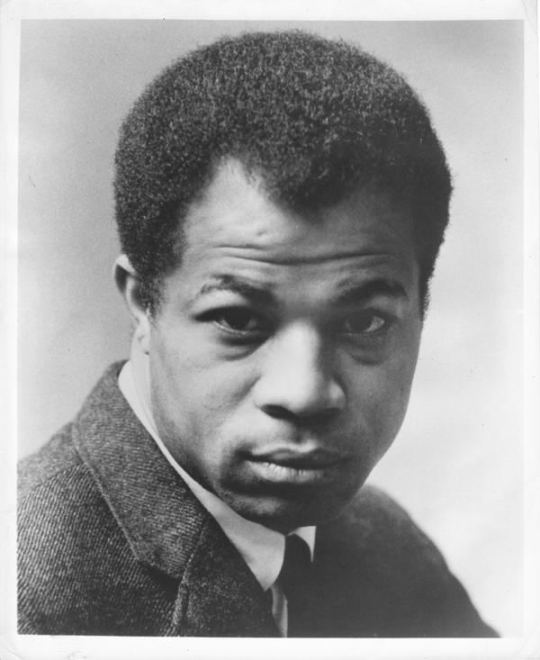




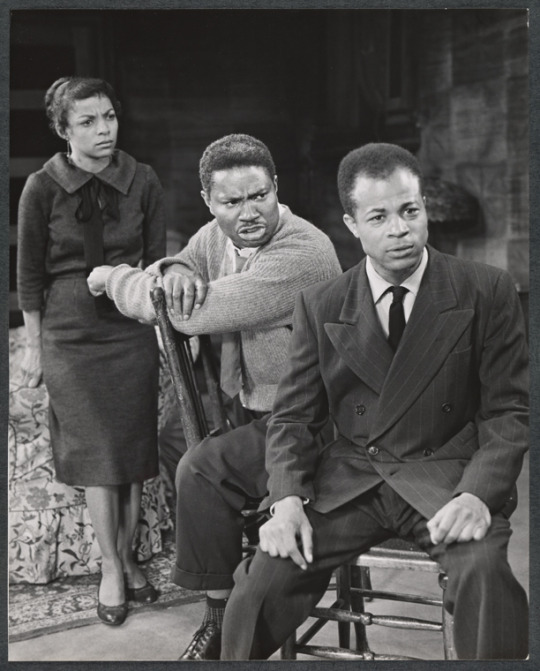
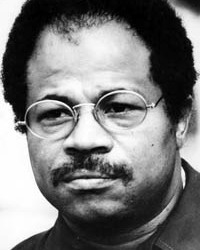
5 notes
·
View notes
Text

"Melinda" (1972) is an action-crime-drama directed by Hugh A. Robertson, who was the editor of the 1971 classic, "Shaft." This movie features Calvin Lockhart in the prime of his acting career, and his screen presence is as ever dominant. In addition, one of the most underrated actresses from the 70s, Vonetta McGee, appears in the film as Melinda. This movie was McGee's 7th film, and she had already garnered some success from films like "Blacula," "The Lost Man," and "The Great Silence." Afterward, she continued her lucrative career in several Hollywood movies with many versatile roles.
Trivia Question: Which other male actors played alongside Vonetta McGee?
"Melinda" is an excellent movie with a solid cast. The film's writer, Lonne Elder III, is also responsible for writing the prolific movie "Sounder." He also has two hard-to-find films we seek: "Ceremonies in Dark Old Men" (1975) and "Sounder, Part 2" (1976). Both films were T.V. movies. Elder also had a role in "Melinda" as Lt. Daniels.
Jerry Peters and Jerry Butler are responsible for producing the film's soundtrack. It's a good mix of funk and soul, with mostly instrumentation throughout the album. It's definitely above average, so make sure you listen to it. You will not be disappointed.
"Melinda," while not one of the most celebrated black films from the 1970s, still deserves recognition as a good film. It checks off most of the components of an ideal movie. I recommend this movie for viewing.
Director: Hugh A. Robertson
Writers: Lonne Elder III (screenplay by), Raymond Cistheri (story by)
Starring Calvin Lockhart, Rosalind Cash, Vonetta McGee, Paul Stevens, Jim Kelly, Rockne Tarkington, Renny Roker, Lonne Elder, Ross Hagen, Jan Tice
Storyline
Frankie J. Parker (Calvin Lockhart), a smooth-talking disk jockey, finds Melinda Lewis (Vonetta McGee) brutally murdered in his L.A. apartment. He turns detective to clear his name. Chased and attacked by junkies, dealers, and thugs, Frankie soon learns Melinda is the ex-mistress of a Chicago mobster and has evidence the gangster wants back. Enlisting the aid of a jealous ex-flame (Rosalind Cash) and a karate master from the hood (Jim Kelly, in his screen debut), Frankie sets out to track down the mob boss who framed him and avenge Melinda's death.
Available on DVD and streaming services.
https://www.amazon.com/Melinda-Calvin-Lockhart/dp/B01C884XVI
0 notes
Photo
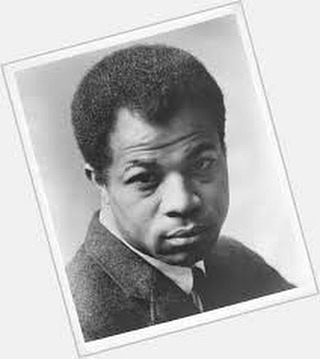
Lonne Elder III (December 26, 1927 – June 11, 1996) was an actor, playwright, and screenwriter. He was one of the leading African American figures who informed the New York theater world with social and political consciousness. He wrote scripts for television and film. His most well-known play, Ceremonies in Dark Old Men won him a Drama Desk Award for Most Promising Playwright and was nominated for the Pulitzer Prize. He and Suzanne de Passe became the first African Americans to be nominated for the Academy Award in writing. He received the Best Adapted Screenplay nomination for the movie Sounder. Returning from the army, he immersed himself in the Harlem literary scene, receiving direct encouragement from poets Robert Hayden and Langston Hughes, among others, and began honing his talent as a writer. Working as a stage actor, he landed the role of Bobo in the original Broadway run of Lorraine Hansberry's A Raisin in the Sun. Inspired by Hansberry and his friendship with dramatist Douglas Turner Ward, he set his sights on becoming a playwright. Sharing an apartment with Ward helped inspire him to write a play titled A Hysterical Turtle in a Rabbit Race. It was an early expression of his chosen theme of the African American family in a hostile America. He continued to make a living as a gambler and combined acting with odd jobs. He appeared in a production of Ward's play Day of Absence in 1965. Ceremonies in Dark Old Men was given a reading at Wagner College on New York's Staten Island. The reading of the play propelled him to a fellowship in screenwriting at the Yale University School of Drama and won him several other financial awards. His one-act play Charades on East Fourth Street, which depicted a clash between community members and police, was performed at the Expo ’67 World’s Fair in Montreal, Canada. He served as director of the new Negro Ensemble Company’s playwrights division and when that company launched its first season at New York's St. Mark's Playhouse, Ceremonies in Dark Old Men was selected for production. #africanhistory365 #africanexcellence https://www.instagram.com/p/Cmokj0Src4O/?igshid=NGJjMDIxMWI=
0 notes
Photo

Claudia McNeil in ‘A Raisin in the Sun’, A Play by Lorraine Hansberry, w/ Elwood Smith, Frances Foster, Bobby D. Hooks, Douglas Turner, Lonne Elder III, Howland Chamberlain, Diana Sands, Edward Hall, Tyrone Cooper, Robert Jackson, Directed by Lloyd Richards, Wilbur Theatre, Boston, MA, 1959 [Artcraft Lithograph & Printing Co, New York, NY]
#graphic design#typography#art#theatre#theater#play#poster#lorraine hansberry#claudia mcneil#elwood smith#frances foster#bobby d. hooks#douglas turner#lonne elder iii#howland chamberlain#diana sands#edward hall#tyrone cooper#robert jackson#lloyd richards#wilbur theatre#1950s
20 notes
·
View notes
Photo
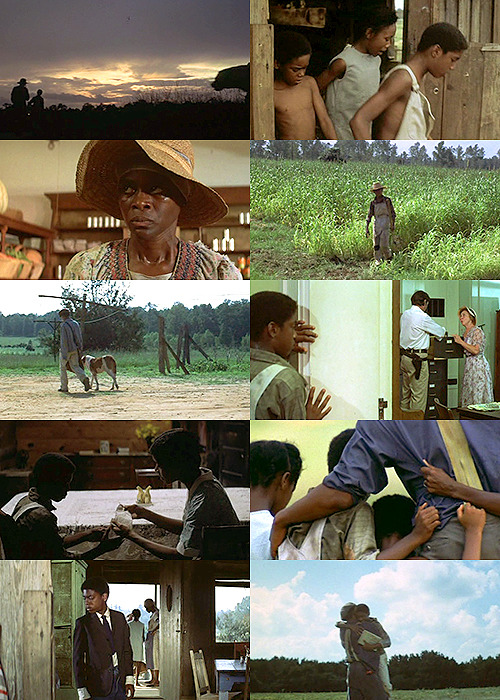
Sounder (1972). The oldest son of a loving and strong family of black sharecroppers comes of age in the Depression-era South after his father is imprisoned for stealing food.
This is such an evocative film. It’s emotionally rounded, grounded in strong performances, a compelling script and some wonderful cinematography. It works as a civil rights film, a period drama, and most deeply as a father-son story. It’s really strong, and a perfect one for father’s day! 8/10.
#sounder#1972#Oscars 45#Nom: Picture#Nom: Actor#Nom: Actress#Nom: Adapted Screenplay#martin ritt#Lonne Elder III#William H. Armstrong#Cicely Tyson#paul winfield#kevin hooks#Carmen Mathews#1930s#america#american#race#civil rights#father-son#8/10
54 notes
·
View notes
Text
Robert Hooks
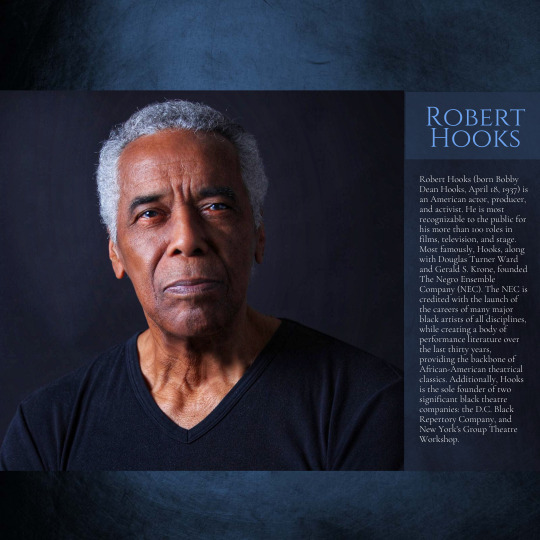
Robert Hooks (born Bobby Dean Hooks, April 18, 1937) is an American actor, producer, and activist. He is most recognizable to the public for his more than 100 roles in films, television, and stage. Most famously, Hooks, along with Douglas Turner Ward and Gerald S. Krone, founded The Negro Ensemble Company (NEC). The NEC is credited with the launch of the careers of many major black artists of all disciplines, while creating a body of performance literature over the last thirty years, providing the backbone of African-American theatrical classics. Additionally, Hooks is the sole founder of two significant black theatre companies: the D.C. Black Repertory Company, and New York's Group Theatre Workshop.
Biography
Early life
The youngest of five children, Hooks was born in Foggy Bottom, Washington, D.C. to Mae Bertha (née Ward), a seamstress, and Edward Hooks who had moved from Rocky Mount, North Carolina with their four other children, Bernice, Caroleigh, Charles Edward "Charlie", and James Walter "Jimmy". Named Bobby Dean Hooks at birth, Robert was their first child born "up-north" and the first to be born in a hospital. His father, Edward, died in a work accident on the railroad in 1939.
Hooks attended Stevens Elementary School. In 1945, at the insistence of his sister Bernice who was doing community arts outreach for youngsters at Francis Junior High School, he performed the lead in his first play, The Pirates of Penzance, at the age of nine. From the ages of 6 to 12, Bobby Dean journeyed with his siblings to Lucama, North Carolina to work the tobacco fields for his uncle's sharecropping farm as a way to help earn money for the coming school year in D.C.
In 1954, just as Brown vs. Board of Education was being implemented in the north, he moved to Philadelphia to be with his mother, her second husband, and his half-sister, Safia Abdullah (née Sharon Dickerson). Hooks experienced his first integrated school experience at West Philadelphia High School. Hooks soon joined the drama club and began acting in plays by William Shakespeare and Samuel Beckett. He was graduated in 1956, passing on a scholarship to Temple University in order to pursue a career as a stage actor at the Bessie V. Hicks School of Theatre (alongside Charles Dierkop and Bruce Dern, with whom he second-acted plays doing their pre-Broadway tryouts in Philadelphia) while working at Browning King, a men's tailor shop at Fourteenth and Chestnut streets.
Career
Having trained at the Bessie V. Smith School of Theatre in Philadelphia, and after seeing A Raisin in the Sun in its Philadelphia tryout in February 1959, Hooks moved to New York to pursue acting. In April 1960, as Bobby Dean Hooks, he made his Broadway debut in A Raisin in the Sun replacing Louis Gossett, Jr. who would be doing the film version. He then continued to do its national tour. He then stepped into the Broadway production of A Taste of Honey, replacing Billy Dee Williams; then repeating the same national tour trajectory as he had done for "Raisin..." the previous year. In early 1962 he next appeared as the lead in Jean Genet's The Blacks, replacing James Earl Jones as the male lead, leaving briefly that same year to appear on Broadway again in Tiger, Tiger, Burning Bright before stepping back into the lead role in The Blacks in 1963. He then returned to Broadway, first in Ballad for Bimshire and then in the short-lived 1964 David Merrick revival of The Milk Train Doesn't Stop Here Any More (as a character created by Tennessee Williams for this revival) and starring Tallulah Bankhead and Tab Hunter in his only stage performance. Immediately thereafter, in March 24, 1964 he originated the role of Clay in Amiri Baraka's Dutchman. With this play, on the advice of Roscoe Lee Brown, Hooks became known as, Robert Hooks. He also originated roles on the New York stage in Where's Daddy? for which he won the Theatre World Award and he was nominated for Best Male Lead in a Musical for Hallelujah Baby while he was simultaneously starring in David Susskind's N.Y.P.D.—the first African American lead on a television drama.
In 1968 Hooks was the host of the new public affairs television program, Like It Is.
Hooks was nominated for a Tony for his lead role in the musical, Hallelujah, Baby!, has received both the Pioneer Award and the NAACP Image Award for Lifetime Achievement, and has been inducted into the Black Filmmakers Hall of Fame. He also won an Emmy for his PBS special, Voices of Our People.
Significant roles for which Hooks is known include Reeve Scott in Hurry Sundown (1967), Mr. T. in the blaxploitation film Trouble Man (1972), grandpa Gene Donovan in the comedy Seventeen Again (2000), and Fleet Admiral Morrow in Star Trek III: The Search for Spock (1984). He also appeared on television in an episode of the NBC crime drama series The Eddie Capra Mysteries in 1978 and portrayed Doctor Walcott in the 1980s television series Dynasty.
Activism
Arts and Culture
In 1964, as a result of a speaking engagement at the Chelsea Civil Rights Committee (then connected to the Hudson Guild Settlement House) he founded The Group Theatre Workshop (GTW), a tuition-free environment for disadvantaged urban teens who expressed a desire to explore acting. Among the instructors were Barbara Ann Teer, Frances Foster, Hal DeWindt, Lonne Elder III, and Ronnie Mack. Alumni include Antonio Fargas, Hattie Winston, and Daphne Maxwell Reid.
The Group Theatre Workshop was folded into the tuition-free training arm of the The Negro Ensemble Company (NEC) founded in 1967 with Douglas Turner Ward and Gerald S. Krone with a $1.3 million grant from the Ford Foundation under the auspices of W. McNeil Lowry.
From 1969-1972, Hooks served as an original board member of Black Academy of Arts and Letters (BAAL) (located in New York) alongside C. Eric Lincoln, President; John O. Killens, Alvin F. Poussaint, and Charles White. Chartered by the State of New York, BAAL's mission was to bring together Black artists and scholars from around the world. Additional members included: Julian Adderley, Alvin Ailey, Margaret Walker, James Baldwin, Imamu Baraka, Romare Bearden, Harry Belafonte, Lerone Bennett, Arna Bontemps, Ossie Davis, Ruby Dee Davis, St. Clair Drake, Ernest Dunbar, Katherine Dunham, Lonne Elder III, Duke Ellington, Alex Haley, Ruth Inge Hardison, Vertis Hayes, Chester Himes, Lena Horne, Jacob Lawrence, Elma Lewis, Henry Lewis, Paule Marshall, Donald McKayle, Arthur Mitchell, Frederick O’Neal, Gordon Parks, Sidney Poitier, Benjamin Quarles, Lloyd Richards, Lucille D. Roberts, and Nina Simone.
In response to the violence in his home town of Washington, D.C. in the wake of the Rev. Dr. Martin Luther King, Jr.'s assassination, and aided by a small grant from the Eugene and Agnes E. Meyer Foundation, Hooks took a leave of absence from the Negro Ensemble Company to create The D.C. Black Repertory Company (DCBRC, 1970-1981). As Founder and Executive Director, the DCBRC was intended as a further exploration of the ability of the arts to create healing. The a capella group Sweet Honey in the Rock was created and developed within its workshop process.
The Inner Voices (Lorton Prison arts training program, 1971) proved to be a result of the beneficial effect of the DCBRC in the D.C. area. In response to a direct plea from an inmate, Rhozier "Roach" Brown, who was serving a life sentence in Lorton, Hooks' D.C. Black Repertory Company structured the first prison-based arts program in the United States. While it is the norm now, it was then a revolutionary attempt at rehabilitation through the arts. Eventually The Inner Voices performed more than 500 times in other prisons, including a Christmas special entitled, "Holidays, Hollowdays." Due to Roach's work, President Gerald Ford commuted his sentence on Christmas Day, 1975.
His relocation to the West Coast redirected Hooks' approach to parity in the arts with his involvement with The Bay Area Multicultural Arts Initiative (1988) as a board member and grant facilitator-judge. Funded by monies from a unique coalition made up of the San Francisco Foundation (a community foundation); Grants for the Arts of the San Francisco Hotel Tax Fund, and The National Endowment for the Arts, the function of this organization was the funding of deserving local multicultural arts organizations.
In 1992, Hooks co-founded (with writer Lonne Elder III) Arts in Action. Located in South Central Los Angeles, this was a film and television training center established to guide individuals who aspired to careers in film production. It formulated strategies and training for securing entry-level jobs. Courses included: career development workshops; pre-production and production for film and television; creative problem solving in production management; directing for stage and screen—principles and practices; also the craft of assistant directors, script supervisor, technicians, wardrobe, make-up, etc.
The Negro Ensemble Company of Los Angeles (NEC-LA) (1994-1997) was created because so many New York members and original members had relocated to the west coast. Hooks, as founder and executive director enlisted alumni from his New York Negro Ensemble Company to serve as board members: Denise Nicholas, Denzel Washington, James Earl Jones, Laurence Fishburne, Richard Roundtree, Samuel L. Jackson. NEC-LA's goal was to be a new and innovative multi-ethnic cultural project that strived to achieve the community effectiveness and professional success of its parent organization.
Personal life
Hooks is the father of actor, television and film director Kevin Hooks. He married Lorrie Gay Marlow (actress, author, artist) on June 15, 2008. Previously, he was married to Yvonne Hickman and Rosie Lee Hooks.
Awards
1966 - Theatre World Award (1965–66 ) for "Where's Daddy?" (The Billy Rose Theatre)
1979 - American Black Achievement Award - Ebony Magazine
1982 - Emmy Award for Producing (1982) Voices of Our People: In Celebration of Black Poetry (KCET-TV/PBS)
1966 - Tony Nomination, Lead Role in a Musical for Hallelujah, Baby
1985 - Inducted into The Black Filmmakers Hall of Fame, recipient Oscar Micheaux Award (1985)
1986 - March 2nd declared Robert Hooks Day by the City of Los Angeles, Mayor Tom Bradley
1987 - Excellence in Advertising and Communications to Black Communities from CEBA (Excellence in Advertising and Communications to Black Communities)
2000 - Honorary Doctor of Humane Letters, Honoris Causa honorary degree, Bowie State University
2000 - May 25th declared Robert Hooks Day in Washington, D.C.
2005 - Beverly Hills/Hollywood Chapter NAACP Image Award for Lifetime Achievement
2005 - Beverly Hills/Hollywood Chapter NAACP Trailblazer Award to the Negro Ensemble Company
2005 - Trailblazer Award – City of Los Angeles
2006 - The Black Academy of Arts and Letters (TBAAL), Lifetime Achievement Award (Dallas)
2007 - The Black Theatre Alliance Awards / Lifetime Achievement Award
2015 - Living Legend Award (2015) National Black Theatre Festival
2018 - October 18th proclaimed Robert Hooks Day by Mayor Muriel Bowser, Washington, D.C.
2018 - Hooks is entered into The Congressional Record by the Hon. Eleanor Holmes Norton, September 4, 2018, Vol. 164
2018 - Visionary Founder and Creator Award - D.C. Black Repertory Company on its 47th anniversary
Acting Credits
Film
Sweet Love, Bitter (1967) .... Keel Robinson
Hurry Sundown (1967) .... Reeve Scott
Last of the Mobile Hot Shots (1970) .... Chicken
Carter's Army (1970) .... Lt. Edward Wallace
Trouble Man (1972) .... Mr. T
Aaron Loves Angela (1975) .... Beau
Airport '77 (1977) .... Eddie
Fast-Walking (1982) .... William Galliot
Star Trek III: The Search for Spock (1984) .... Admiral Morrow
Passenger 57 (1992) .... Dwight Henderson
Posse (1993) .... King David
Fled (1996) .... Lt. Clark
10 notes
·
View notes
Text
Sounder
BBBBB (out of 5) A poor family of sharecroppers in early 1930s Louisiana are having such a difficult time getting by that dad Paul Winfield is compelled to steal food from a neighbour. Immediately arrested and sent to prison for a year, he leaves behind a wife (Cicely Tyson) and three children to take care of the year’s harvest, the eldest of his kids a thoughtful boy (Kevin Hooks) coming of age…
View On WordPress
#Academy Award 1972#Al Bankston#BAFTA 1973#Carl Braser#Carmen Mathews#Cicely Tyson#Directors Guild 1972#Eric Hooks#Golden Globe 1972#Inez Durham#Isaac Greggs#Jackie Spears#James Best#Janet MacLachlan#Jerry Leggio#John A. Alonzo#Kevin Hooks#Lonne Elder III#Martin Ritt#Myrl Sharkey#National Board Of Review 1972#National Society of Film Critics 1972#Nedra Rosemond-Watt#New York Film Critics 1972#Paul Winfield#Peter Goff#Porter Mathews#Radnitz/Mattel Productions#Rainbow Group#Randy Wilson
0 notes
Text
How To Listen
One of the most important skills we have as human beings is our ability to communicate, and to do so effectively.
However, one could easily argue that - societally speaking - we have not been communicating effectively with one another, or have only been doing so with a select group of people. The events of the past ten days seem like blatant proof of that.
A large part - if not the largest part - of effective communication and the subsequent forward momentum of progress is:
Active Listening.
We - and I’m speaking to the heavily White majority of my readership here - are being asked right now to Actively Listen to our Black peers, friends, family, colleagues, allies, acquaintances, and all Black voices across the country.
So how do we do this? What does this mean? Where to start?
Active Listening
The practice of Active Listening can be defined as:
Giving total concentration to what is being said, providing full attention and utilizing all senses.
Active Listening is not merely hearing the sounds, nor is it giving passive attention whilst waiting for the next moment. Likewise, it is not waiting for your turn to speak.
The purpose of Active Listening is to fully comprehend what is being said and to provide both empathy and understanding. It is not critical - where you would listen and then offer your own opinion/insight - and it is not with the intention of reply, except to show comprehension.
Active Listening should be:
Neutral and non-judgemental
Patient
Filled with cues that you are listening (particularly if in person)
Open to asking questions and to clarification
Inclusive of reflection back on what has been said
Here are some clarifications on what Active Listening should not include:
Wandering thoughts
Disrespect
Interruptions
Distraction
One-upping the speaker
Focus on small details
Self-centering the narrative
Passing over what was not comprehended
Active Listening should establish a sense of trust and - most importantly - it is about the Speaker, not the listener.
Like any skill, Active Listening takes practice, but it may be the most crucial skill we can possibly posses.
Not Our Time
White folx: This is not our time to speak.
Honestly, I hesitated even writing this post today. But ultimately, it seemed that if I could use this platform to help educate and provide information that is critical at this time, it would be better to speak up right now than do my own work quietly.
We have been talking and controlling the narrative in this country from the beginning, and that was not right. We were wrong. So we must do better.
Right now Black folx are speaking up - as they have been the whole time - and are finally being heard. So instead of trying to raise our own voice into that conversation, it is time for us to sit down and Listen.
Here are some important considerations before we dive in:
Is this education going to be quick? No.
Is it going to be easy? No.
Are we going to make mistakes? Yes, and then we own up to those mistakes and we fix them.
Will we encounter discomfort? YES. If you’re not uncomfortable throughout this process, you’re likely not trying hard enough to learn.
Will we have to unlearn habits, practices, and biases? Oh yes. Many many many.
Can we rely on Black folx to educate us? NO. This is up to US to learn. They tried teaching when we weren’t listening, so now WE must do the work.
Will we get a pat on the back for our work, time, and effort? No. I know you’re going to want one, but we don’t get one. Not when we’re 250 years late.
Do we have to post on social media? No. As long as you’re doing the work and having the conversations, social media is not necessary. Honestly - and I’m trying to do this myself - the conversation on our social media accounts should be about providing resources to other White folx and amplifying what is being said by Black voices.
Should I ask questions? Yes! Ask other White folx if you’re confused about something. Do some research. Find a friend or family member you can trust with a question you think is silly or embarrassing. It’s all part of the work.
And I’m sure there are plenty more questions to answer even beyond these, but let’s dive in.
Where To Start
There is an overwhelming amount of material to be consumed for our education.
I’ve been collecting a list of places to start, which I figured could be helpful to everyone. I’ve broken it down into categories, which I hope you will all find helpful.
If you have further suggestions, please place them in the comments!
Watch:
Netflix:
13th
American Son
Black Earth Rising
Brian Banks
Dear White People
Get On The Bus
The Kaliep Browder Story
LA 92
See You Yesterday
Strong Island
When They See Us
HBO:
King In The Wilderness
Notes From The Field
We Are The Giant
Hulu:
3 1/2 Minutes. 10 Bullets
Blindspotting (free with Cinemax)
The Hate U Give (free with Cinemax)
If Beale Street Could Talk
Amazon Prime:
Blindspotting
Just Mercy (rent free in June)
Quest
Westwind: Djalu’s Legacy
CBC:
The Skin We’re In
SBS On Demand:
First Australians
Rent:
12 Years A Slave (possibly still on Netflix)
BlacKkKlansmen
Black Britain On Film
The Black Panthers: Vanguard of the Revolution
Black Power Mixtape: 1967-1975
Blood & Water (series)
Clemency
Detroit
Do Not Resist
Do the Right Thing
Fruitvale Station (possibly still on Netflix)
The House I Live In
I Am Not Your Negro (possibly still on Netflix)
Malcolm X
Maya Angelou: And I Still Rise
More Than A Month
Putaparri and the Rainmakers
Queen and Slim
Queen Sono
Queen Sugar
Roots
Selma
Slavery By Another Name
The Tall Man
Online:
Black Lives Matter activist videos: blacklivesmatter.com/activist-shorts/
Read:
Books:
So You Want To Talk About Race by Ijeoma Oluo
Algorithms of Oppression by Safiya Noble
Blood In My Eye by George L. Jackson
If They Come In The Morning… by Angela Y. Davis
The Great Unlearn by Rachel Cargle
Me And White Supremacy by Layla F. Saad
White Fragility: Why It’s So Hard for White People to Talk About Racism by Robin DiAngelo
This Book Is Anti-Racist by Tiffany Jewell
How To Be An Antiracist by Ibram X. Kendi
Stamped: Racism, Antiracism and You by Ibram X. Kendi and Jason Reynolds
Unpacking The Invisible Knapsack (essay) by Peggy McIntosh
Black Feminist Thought by Patricia Hill Collins
Eloquent Rage: A Black Feminist Discovers Her Superpower by Dr. Brittney Cooper
Heavy: An American Memoir by Kiese Laymon
I Know Why The Caged Bird Sings by Maya Angelou
I’m Still Here: Black Dignity In A World Made For Whiteness by Austin Channing Brown
Just Mercy by Bryan Stevenson
Redefining Realness by Janet Mock
Sister Outsider by Audre Lorde
The Bluest Eye by Toni Morrison
The Fire Next Time by James Baldwin
The New Jim Crow: Mass Incarceration in the Age of Colorblindness by Michelle Alexander
The Next American Revolution: Sustainable Activism for the Twenty-First Century by Grace Lee Boggs
The Warmth Of Other Suns by Isabel Wilkerson
Their Eyes Were Watching God by Zora Neale Hurston
This Bridge Called My Back: Writings by Radical Women of Color by Cherrie Moraga
Raising Our Hands by Jenna Arnold
When Affirmative Action Was White: An Untold History of Racial Inequality in Twentieth-Century America by Ira Katznelson
Why I’m No Longer Talking To White People About Race by Reni Eddo-Lodge
Queenie by Candice Carty-Williams
Small Great Things by Jodi Picoult
Between the World and Me by Ta-Nehisi Coates
The Color Purple by Alice Walker
Playwrights (and a First Play Suggestion)
Dominique Morissea - Pipeline
Lynn Nottage - Sweat
Anna Deavere Smith - Notes From The Field
Dael Orlandersmith - Yellowman
August Wilson - Fences
Katori Hall - The Mountaintop
Jocelyn Bioh - School Girls; or, The African Mean Girls Play
Alice Childress - Wine In The Wilderness
Jeremy O. Harris - Slave Play
Lydia Diamond - Stick Fly
Antoinette Nwandu - Pass Over
Charles Fuller - A Soldier’s Play
Aleshea Harris - What to Send Up When it Goes Down
Peal Cleage - The Nacirema Society Requests the Honor of Your Presence at a Celebration of Their First One Hundred Years
Danai Guria - Eclipsed
Adrienne Kennedy - Funnyhouse of a Negro
Langston Hughes - Simply Heaven
Lorraine Hansberry - A Raisin in the Sun
James Baldwin - Blues for Mister Charlie
Charles Gordone - No Place to be Somebody
Tarell Alvin McCraney - Choir Boy
Colman Domingo - Dot
Amiri Baraka (LeRoi Jones) - Dutchman and the Slave
Lonne Elder III - Ceremonies in Dark Old Men
Douglas Turner Ward - Day of Absence & Happy Ending
Kia Corthron - Breath, Boom
Ntozake Shange - For Colored Girls who have Considered Suicide When the Rain-bow is Enuf
Mfonsio Udofia - Her Portmanteau
Suzan-Lori Parks - Topdog/Underdog
Samm-Art Williams - Home
George C. Wolfe - Spunk & The Colored Museum
Listen:
Podcasts:
1619
About Race
#BLACKLIVESMATTER
Code Switch (NPR)
The Combahee River Collective Statement
Diversity Gap
How to Survive the End of the World
The Intelligence
Intersectionality Matters
Momentum: A Race Forward Podcast
Pod For The Cause
Pod Save the People
Seeing White
Speaking of Racism
The Stoop
TED Radio Hour: Confronting Racism
Uncomfortable Conversations
We Live Here
What Matters
You’re Pretty For A…
Audiobook:
How To Be An Antiracist
Beginning
Is that list comprehensive? Nope.
This is just the start.
But to make progress, we all must begin somewhere. I hope this list helps you find a place to begin and that you will continue to do the work. In the meantime, I’m here if you have questions.
Be well, friends. Cheers.
#glamorous life blog#glamorous life#Black Lives Matter#education#listen#active listening#learn#books#playwright#play#Black authors#watch#read#podcast
0 notes
Text
Oscars 2017: 2 Black Screenwriters Earn Oscar Noms for First Time Ever
Oscars 2017: 2 Black Screenwriters Earn Oscar Noms for First Time Ever
For the first time ever, the Academy has nominated three black screenwriters for Oscars in the same year. Barry Jenkins and Tarell McCraney shared an Adapted Screenplay nomination for “Moonlight,” along with the late August Wilson for “Fences.” The previous record happened in 1972, when two black screenwriters socred nominations: Suzanne De Plasse for “Lady Sings the Blues” and Lonne Elder III…
View On WordPress
0 notes
Photo
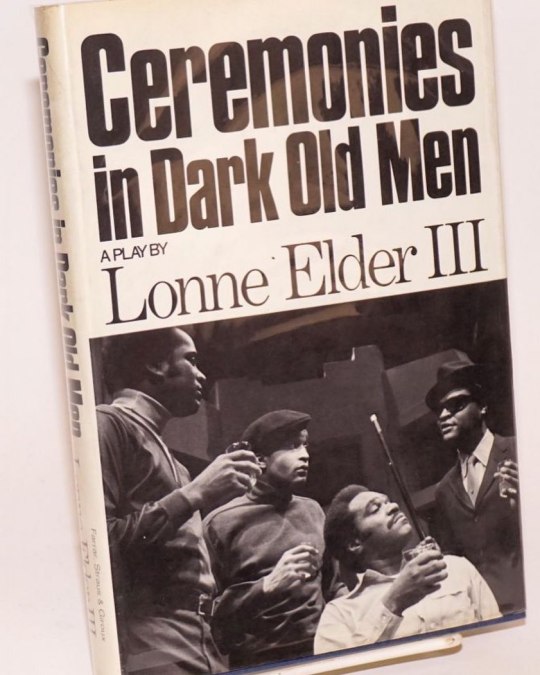
Lonne Elder III (December 26, 1927 – June 11, 1996) was an actor, playwright and screenwriter. He was one of the leading African American figures who aggressively informed the New York theater world with social and political consciousness. He wrote scripts for television and film. His most well known play, Ceremonies in Dark Old Men won him a Drama Desk Award for Most Promising Playwright and was nominated for the Pulitzer Prize. He and Suzanne de Passe became the first African Americans to be nominated for the Academy Award in writing. He received the Best Adapted Screenplay nomination for the movie Sounder. Returning from the army, he immersed himself in the Harlem literary scene, receiving direct encouragement from poets Robert Hayden and Langston Hughes, among others and began honing his talent as a writer. Working as a stage actor, he landed the role of Bobo in the original Broadway run of Lorraine Hansberry's A Raisin in the Sun. Inspired by Hansberry and his friendship with dramatist Douglas Turner Ward, he set his sights on becoming a playwright. Sharing an apartment with Ward also helped inspire him to write a play titled A Hysterical Turtle in a Rabbit Race. It was an early expression of his chosen theme of the black family in a hostile America. He continued to make a living as a gambler and combining acting with odd jobs. He appeared in a production of Ward's play Day of Absence in 1965. Ceremonies in Dark Old Men was given a reading at Wagner College on New York's Staten Island. The reading of the play propelled him to a fellowship in screenwriting at the Yale University School of Drama, and won him several other financial awards. His one-act play Charades on East Fourth Street, which depicted a clash between community members and police, was performed at the Expo ’67 World’s Fair in Montreal, Canada. He served as director of the new Negro Ensemble Company’s playwrights’ division from and when that company launched its first season at New York's St. Mark's Playhouse, Ceremonies in Dark Old Men was selected for production. #africanhistory365 #africanexcellence https://www.instagram.com/p/CX8nOdKLDVhzGoj_vHaUl7V_ySQMDmx0JRlTg80/?utm_medium=tumblr
2 notes
·
View notes
Photo
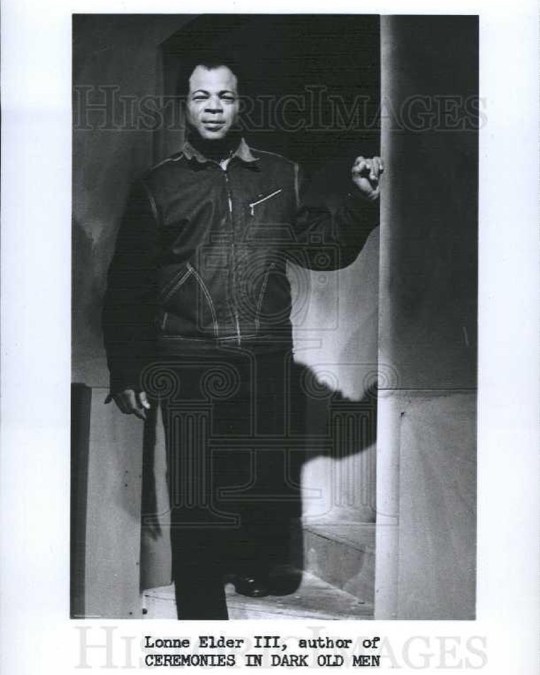
Lonne Elder III (December 26, 1927 – June 11, 1996) was an actor, playwright and screenwriter. Hewas one of the leading African American figures who aggressively informed the New York theater world with social and political consciousness. He also wrote scripts for television and film. His most well known play, Ceremonies in Dark Old Men won him a Drama Desk Award for Most Promising Playwright and was nominated for the Pulitzer Prize. The play, which was about a Harlem barber and his family, was produced by the Negro Ensemble Company in 1969. He and Suzanne de Passe became the first African Americans to be nominated for the Academy Award in writing. He received the Best Adapted Screenplay nomination for the movie Sounder, starring Cicely Tyson, Paul Winfield, and Kevin Hooks and directed by Martin Ritt. Returning from the army, he immersed himself in the Harlem literary scene, receiving direct encouragement from poets Robert Hayden and Langston Hughes, among others and began honing his talent as a writer. Working as a stage actor, he landed the role of Bobo in the original Broadway run of Lorraine Hansberry's A Raisin in the Sun. Inspired by Hansberry and his friendship with dramatist Douglas Turner Ward, he set his sights on becoming a playwright. Sharing an apartment with Ward also helped inspire him to write a play titled A Hysterical Turtle in a Rabbit Race. It was an early expression of his chosen theme of the black family in a hostile America. He continued to make a living as a gambler and combining acting with odd jobs. He appeared in a production of Ward's play Day of Absence in 1965. #africanhistory365 #africanexcellence https://www.instagram.com/p/CJSWuZdrlG99fRhvIkggxt5HGPEQ5t_dgSMVyM0/?igshid=890y65lax0f8
0 notes